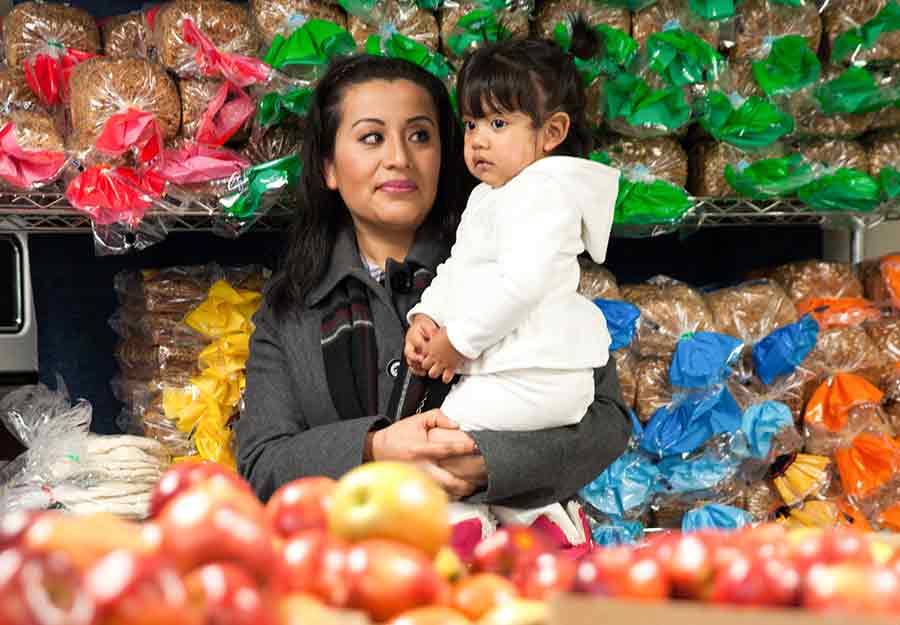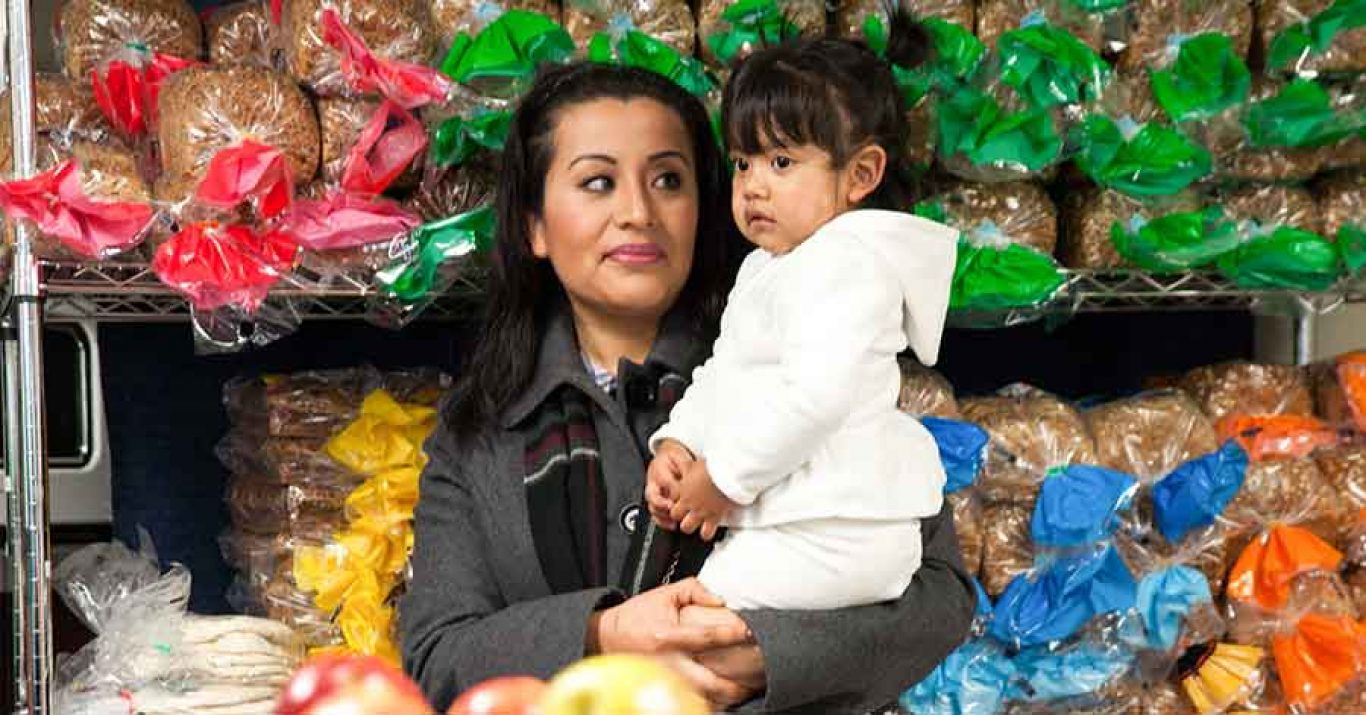Why Portland voters should say “yes” to the Portland Children’s Levy – By David Sarasohn
Why Portland voters should say “yes” to the Portland Children’s Levy – By David Sarasohn
April 24, 2018 – The sign above the blackboard says firmly, in the tone you might use to an unruly second-grader, “Think you don’t need math? Think again.” Above the next blackboard is a display of math symbols, the addition sign and the subtraction sign marching across the wall. It’s a portable classroom next to Lent Elementary School, in outer Southeast Portland, just the place where grade schoolers are force-marched through the multiplication tables.
Except this is a Monday afternoon, after school, and the tables aren’t covered with 10-year-olds’ best guesses at 9 times 7, but with boxes of macaroni and cheese, bags of potatoes and boxes of cabbage. Once a week at Lent school – and at dozens of others in Portland – a food pantry blooms, and parents picking up their kids from school can also pick up something to fuel them for homework.
At each school, at least 65 percent of students qualify for free or reduced price lunch, a category that includes a daunting number of local schools.
The pantry at Lent school, and more than a dozen others, is run with food from the Oregon Food Bank; staff from the Immigrant and Refugee Community Organization; and money from the Portland Children’s Levy. The PCL is enacted every five years by the voters of Portland to support children’s programs that otherwise wouldn’t happen, and a few years ago, the people running it decided that feeding kids was a children’s program.
“It was a really good idea to make access to food convenient,” concludes city commissioner Dan Saltzman, who devised and promoted the levy. “I can’t think why we didn’t do something like this sooner.”
In the May election, Portland will vote again on the children’s levy, which still seems like a really good idea.
Inside the Lent portable space, it seems like a particularly good idea. The waiting room is packed, with children chattering in English and adults trying to quiet them in Spanish, Chinese, Russian, or Vietnamese. These days, the eastern stretches of Portland are as diverse as a Benetton commercial and a big part of the city’s future – and a worthwhile place to invest some beans and rice.
Abeer Zidan arrived here nine years ago from Syria, following her husband, who studied at the University of Portland. Three of her four children are Lent students, and they squirm and tug at her as she explains that the pantry is a good way for them to get some healthy food and vegetables. Asked about their tastes, she ducks her head as if to hide a smile in her head scarf and admits, “Sometimes my kids like chips.”
The irresistible pull of the American snack.
Overseeing the operation today is Mariya Klimenko, a hunger relief coordinator for the Immigrant and Refugee Community Organization. Klimenko speaks fluent Ukrainian, Russian, and Spanish – her father was Cuban – along with Portuguese and French, useful with some new African arrivals. Talking to clients in the waiting room, she switches among her languages – including the gentle English she uses with a visiting writer – with the ease of an artist dipping into all her colors.
It takes a village to feed a village; besides the food bank and the children’s levy, the pantries are supported by Urban Gleaners, New Seasons and other grocers, and a range of church groups.
A big part of the need is that even with parents working, a family can’t live far enough east to escape Portland’s soaring housing costs. “If people have to choose between a roof over their heads and food,” says Klimenko, “they’ll choose the roof.”
In a rising trend, 33 local schools now have food pantries, 19 of them supported by the Portland Children’s Levy. Demand is not limited. “I get more asks to run school pantries,” reports Ally Meyer, child hunger program developer at Oregon Food Bank, “than we have time and space and money to do.”
As the children’s levy comes up for renewal at the May primary, voters get another chance to consider its benefits, including making sure that the voters of Portland tomorrow get dinner tonight.
In other words, voters get to think again.
In lots of languages.

